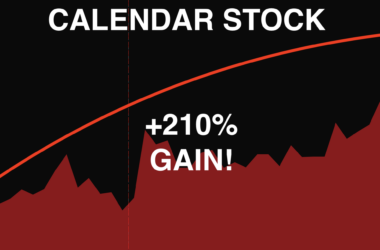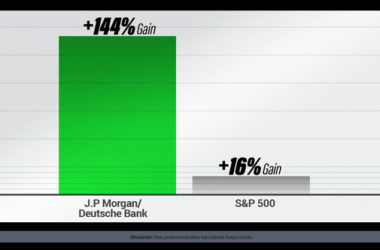Happy Thursday, traders…
Ben here.
I’ve said it before and I’ll say it again … if you trade options like stocks, you’re setting yourself up for failure.
But it’s not always easy to grasp the distinctions between stocks and options, especially for those who haven’t been trading for very long…
When you trade stocks, you’re temporarily buying a piece of a company, becoming a shareholder.
Your trades’ success depends on the share price increasing over time. It’s that simple.
Options, on the other hand, work differently…
An option is a contract that gives you the right, but not the requirement, to buy or sell a stock at a certain price within a specific time period.
And unlike stocks, options have expiration dates. If they’re not sold or exercised by then, they become worthless.
So, what does all of this mean for your trading?
In general, options move faster than stocks, amplifying your potential for quick gains and losses.
Stock traders often ask me how they can transition to options trading without blowing their accounts up.
And today, I’m going to share my answers with you…
🚨 IMPORTANT ANNOUNCEMENT 🚨
Tonight’s the night, folks…
You may think there’s no way to anticipate earnings moves, but you’re wrong…
With the right approach and information, you can often predict whether a company will beat or miss earnings before the news breaks.
Realizing this, I recently designed a specialized calendar system to leverage this earnings season for potentially enormous gains.
Example: This system recently predicted a 91.2% earnings beat on Broadcom! BEFORE its call options exploded 1,014% in less than a day!*
TONIGHT, July 25th, at 8 p.m. Eastern, I’m holding an EXCLUSIVE LIVE EVENT where I’ll reveal the hidden secrets behind Operation: Master Calendar…
This is your last chance — Click here now to claim your spot before space runs out!
Now that you’re signed up, let’s get back to options vs. stocks…
The Dangers of Mixing Stock and Option Strategies
Trying to trade options the same way you trade stocks can lead to serious trouble and brutal losses.
While stocks can be held as long as you’d like … options expire. Time isn’t on your side.
Also, because options can multiply gains and losses, they require more careful risk management than regular stock trading.
On the one hand: A small dip in the share price (that would’ve been easily manageable on a stock trade) could cause your weekly call option to lose 50% of its value in minutes.
On the other hand: A small rise in the underlying share price could multiply the value of your weekly contracts … in minutes.
But options trading isn’t just about predicting the stock’s direction…
You also need to anticipate when the movement will happen and how big the price changes will be…
6 Factors to Consider When Transitioning from Stocks to Options
Here are six key areas to focus on in the options market:
1. Time Decay
The two most important aspects of options trading are direction and time.
Intrinsic value covers direction … but what about the time value of your contracts?
Time value is the extrinsic value of any options contract … it’s what you’re paying for as an options trader.
The more time is left before your contract’s expiration date, the higher its extrinsic value (and overall premium) will be.
Options lose value as time passes, which is known as time decay.
Traders of options not only need to pick the right direction but also guess when the change will happen.
2. Volatility Matters
Volatility, or how much a stock’s price changes, has a big impact on options prices.
In the options market, implied volatility (IV) is an estimate of a stock’s future volatility. It reads as a % figure attached to options contracts.
Understanding IV is crucial. Both puts and calls are more expensive if the contract’s IV is higher.
On the flip side, if a chart looks like a flat line with few price swings, the IV on those options will likely be lower (and the contracts less expensive).
3. Choosing the Right Position Size
Options can quickly multiply gains and losses.
Choosing a position size that fits your risk tolerance will ensure you can get through unsuccessful trades without losing too much.

You also need to know when to size up and get aggressive on perfect patterns.
If you’re leaving a lot of money on the table, so to speak, it will be far more difficult to compound gains and grow your account exponentially.
4. Choosing the Right Strike Price
Selecting the right strike price, especially considering how you think the stock will perform, is key in options trading.
Try to choose a strike price that will deliver solid returns if you’re correct about the timing and direction of the underlying stock, but won’t lose 70% of its value in minutes if you’re wrong.
For me, this generally means avoiding zero-days-to-expiration (0DTE) options and long-dated LEAPs.
The contracts I trade usually have between a week and a month of life remaining.
But don’t just take it from me. You must experiment with different strikes to discover what works for you.
5. Entries and Exits
With options, you need to know when to enter and exit your positions at the opportune moment.
When you’re up big on unrealized gains, you must protect your profits. I accomplish this by scaling out of my winning trades gradually.
Or, when you’re stuck in a losing trade (it’ll happen) … cutting your losses immediately.
Losses can compound much faster with options vs. stocks and you must keep your trades on a short leash for this very reason.
As you see, your entries and exits can make or break your options trading. Set clear price targets to be deliberate with your exits.
💰The Biggest Smart-Money Bets of the Day💰
- $5.7 million bearish bet on TSLA 07/26/2024 $220 puts @ $4.72 avg. (seen on 7/24)
- $1.3 million bullish bet on MU 08/16/2024 $125 calls @ $1.33 avg. (seen on 7/24)
- $1.1 million bearish bet on XLE 09/30/2024 $93 puts @ $4.20 avg. (seen on 7/24)
Happy trading,
Ben Sturgill
P.S. Don’t miss your last chance to access the ultimate tool for trading options during earnings season…
TONIGHT, July 25th, at 8 p.m. Eastern, I’m holding an EXCLUSIVE LIVE EVENT where I’ll reveal the hidden secrets behind Operation: Master Calendar…
There are only a few seats left — Click here now to claim your spot before space runs out!
*Past performance does not indicate future results




